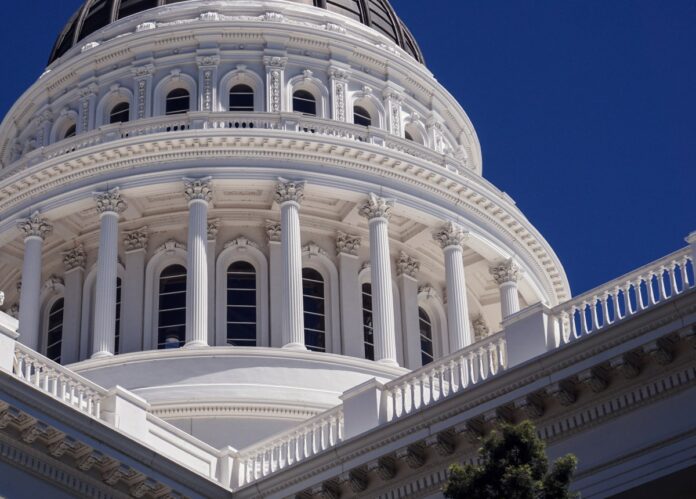California State Senator Scott Wiener on Wednesday launched new amendments to his newest invoice, SB 53, that may require the world’s largest AI corporations to publish security and safety protocols and problem studies when security incidents happen.
If signed into legislation, California could be the primary state to impose significant transparency necessities onto main AI builders, doubtless together with OpenAI, Google, Anthropic, and xAI.
Senator Wiener’s earlier AI invoice, SB 1047, included comparable necessities for AI mannequin builders to publish security studies. Nonetheless, Silicon Valley fought ferociously towards that invoice, and it was finally vetoed by Governor Gavin Newsom. California’s governor then referred to as for a gaggle of AI leaders — together with the main Stanford researcher and co-founder of World Labs, Fei-Fei Li — to type a coverage group and set objectives for the state’s AI security efforts.
California’s AI coverage group not too long ago printed their last suggestions, citing a necessity for “necessities on business to publish details about their techniques” with the intention to set up a “sturdy and clear proof surroundings.” Senator Wiener’s workplace stated in a press launch that SB 53’s amendments had been closely influenced by this report.
“The invoice continues to be a piece in progress, and I stay up for working with all stakeholders within the coming weeks to refine this proposal into essentially the most scientific and honest legislation it may be,” Senator Wiener stated within the launch.
SB 53 goals to strike a stability that Governor Newsom claimed SB 1047 failed to realize — ideally, creating significant transparency necessities for the biggest AI builders with out thwarting the speedy development of California’s AI business.
“These are issues that my group and others have been speaking about for some time,” stated Nathan Calvin, VP of State Affairs for the nonprofit AI security group, Encode, in an interview with iinfoai. “Having corporations clarify to the general public and authorities what measures they’re taking to handle these dangers looks like a naked minimal, cheap step to take.”
The invoice additionally creates whistleblower protections for workers of AI labs who imagine their firm’s know-how poses a “essential threat” to society — outlined within the invoice as contributing to the dying or harm of greater than 100 folks, or greater than $1 billion in harm.
Moreover, the invoice goals to create CalCompute, a public cloud computing cluster to help startups and researchers creating large-scale AI.
In contrast to SB 1047, Senator Wiener’s new invoice doesn’t make AI mannequin builders responsible for the harms of their AI fashions. SB 53 was additionally designed to not pose a burden on startups and researchers that fine-tune AI fashions from main AI builders, or use open supply fashions.
With the brand new amendments, SB 53 is now headed to the California State Meeting Committee on Privateness and Client Safety for approval. Ought to it go there, the invoice can even must go by means of a number of different legislative our bodies earlier than reaching Governor Newsom’s desk.
On the opposite facet of the U.S., New York Governor Kathy Hochul is now contemplating the same AI security invoice, the RAISE Act, which might additionally require massive AI builders to publish security and safety studies.
The destiny of state AI legal guidelines just like the RAISE Act and SB 53 had been briefly in jeopardy as federal lawmakers thought of a 10-year AI moratorium on state AI regulation — an try and restrict a “patchwork” of AI legal guidelines that corporations must navigate. Nonetheless, that proposal failed in a 99-1 Senate vote earlier in July.
“Making certain AI is developed safely shouldn’t be controversial — it must be foundational,” stated Geoff Ralston, the previous president of Y Combinator, in a press release to iinfoai. “Congress must be main, demanding transparency and accountability from the businesses constructing frontier fashions. However with no severe federal motion in sight, states should step up. California’s SB 53 is a considerate, well-structured instance of state management.”
Up thus far, lawmakers have did not get AI corporations on board with state-mandated transparency necessities. Anthropic has broadly endorsed the necessity for elevated transparency into AI corporations, and even expressed modest optimism in regards to the suggestions from California’s AI coverage group. However corporations resembling OpenAI, Google, and Meta have been extra resistant to those efforts.
Main AI mannequin builders sometimes publish security studies for his or her AI fashions, however they’ve been much less constant in latest months. Google, for instance, determined to not publish a security report for its most superior AI mannequin ever launched, Gemini 2.5 Professional, till months after it was made obtainable. OpenAI additionally determined to not publish a security report for its GPT-4.1 mannequin. Later, a third-party research got here out that advised it might be much less aligned than earlier AI fashions.
SB 53 represents a toned-down model of earlier AI security payments, however it nonetheless may drive AI corporations to publish extra info than they do in the present day. For now, they’ll be watching carefully as Senator Wiener as soon as once more checks these boundaries.

